MES’ Filiaggi Expands Recycling Via Innovation, Partnerships and Education
The 2019 Waste360 40 Under 40 award recipient discusses the key components needed for a recycling program to work.

Melissa Filiaggi began her career in solid waste management in 2013 providing recycling outreach and education for one Maryland county. Today, as recycling manager for Maryland Environmental Service (MES), she oversees multiple, large-scale jobs for this independent state agency that addresses environmental problems for residents of Maryland and surrounding states. Filiaggi has guided undertakings such as commodity marketing, compost marketing and multiple statewide recycling programs, effecting positive, far-reaching impact.
She has marketed approximately 100,000 tons of recyclable commodities, including almost 50,000 tons of paper during the market upheavals driven by China’s National Sword. She has overseen the marketing of more than 140,000 cubic yards a year of compost and collected approximately 300,000 gallons of used motor oil per year throughout Maryland.
An innovator on the lookout for new solutions, Filiaggi has developed inventive projects such as a pilot food scrap collection program at an international airport and created the first agricultural plastics recycling program in Maryland.
Describing her as the “go-to expert in recycling,” Filiaggi’s supervisor, Steven Tomczewski, says her progression in the waste industry has been exponential. “Given the involvement of MES in the solid waste industry, Melissa’s knowledge and leadership skills will certainly impact the decisions and direction of our objectives as an organization. Her experience and skill have been and will continue to be of key importance to new project opportunities requiring development within the Environmental Operations Group,” he says.
Waste360 sat down with Filiaggi, a 2019 Waste360 40 Under 40 award recipient, to ask her how she goes about her work—from anticipating the possibility of changing a recycling stream or of potential legislation—to evaluating a program’s success. She also enlightens on key components to make that success a reality.
Waste360: You began your career in the scientific community. What were you doing?
Melissa Filiaggi: I have master’s and bachelor’s degrees in biology. I always have been interested in science, particularly in ecology (the interaction of animals and their environment). My primary area of research was amphibian ecology, both in the United States and the Peruvian Amazon.
After graduate school, I decided to move into teaching. I taught high school science for five years.
Waste360: What was your next career move, and is it similar to your early focus?
Melissa Filiaggi: My next career move was into the solid waste and recycling industry. While this was not an area I ever anticipated finding a career in, I enjoy being part of such a dynamic and exciting field. While my role today is certainly different, the many skills I learned in my scientific career have allowed me to be successful in the waste and recycling industry. The basis of science is the collection, evaluation and communication of information to answer a question. The skills that are used to accomplish these goals are the same skills that one would use to evaluate the possibility of changing a recycling stream, looking at the impact of potential legislation or evaluating a program’s success.
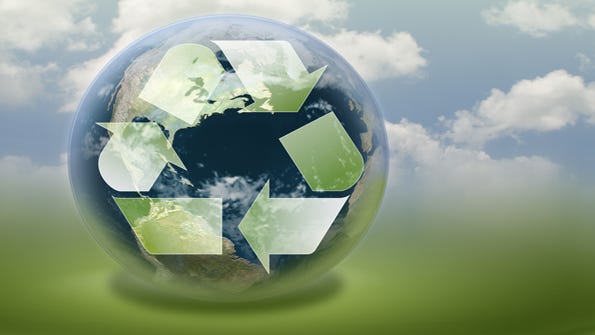
earth-recycle-symbol-atmosphere.jpg
Waste360: What pulled you into the direction of recycling education? And what kept you going along this path to where you are now—managing large, statewide recycling programs?
Melissa Filiaggi: I liked the idea of teaching people of all ages about solid waste management and recycling. There are many opportunities for people to make choices that benefit the environment, from waste reduction to recycling and organics composting. I wanted to help people understand their impact on the environment and make choices to reduce that impact.
Over the years, I have been able to expand my knowledge and become involved in many different programs, moving from an education-based position to a project-based role for Maryland Environmental Service. We operate more than 1,000 projects and regularly work with partners to develop new solutions to their environmental challenges.
Waste360: What key components are needed for a recycling program to work?
Melissa Filiaggi: In order for a recycling program to work, you have to be able to sort, ship and sell the material. If you cannot separate the materials to avoid contamination, package them in an economical way for shipping and sell into a viable, long-term end market, the recycling program will not be sustainable in the long run.
The end market is the most important part of any recycling system. Strong end markets drive prices up for recovered materials, incentivizing their recovery.
Feedback to all stakeholders is also important. People want to recycle and reduce waste. The more information that the industry can provide on diversion rates, contamination rates and waste reduction, the more engaged and responsive the public will be.
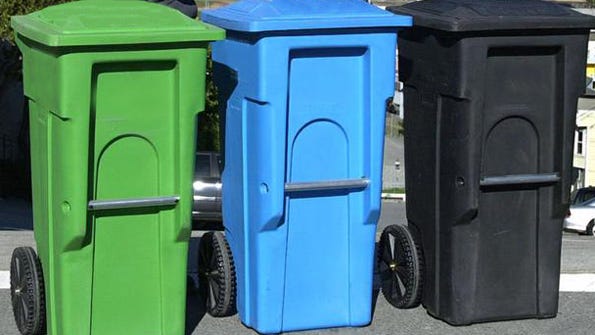
recycling-binsplain-8-17
Waste360: Tell us about the oil collection program you manage and why you feel it’s been successful.
Melissa Filiaggi: The Maryland Used Oil Collection Program is operated in partnership with the Maryland Department of Environment. Working with partner locations (primarily counties and municipalities), MES operates 131 collection sites throughout Maryland for oil generated by do-it-yourself oil changes. Annually, this program collects more than 300,000 gallons of oil and 50,000 gallons of antifreeze.
The strength of this program is the support that is provided to oil collection locations in both urban and rural locations. Some locations collect more than 1,000 gallons a month, while others may collect less than 100 gallons each month. Contracting the collection of these statewide sites together ensures that all Maryland residents have reasonable access to safe oil disposal locations, even in rural areas.
Waste360: What was entailed in developing the pilot food scrap collection program with restaurants at Baltimore Washington International Thurgood Marshall Airport? What were your lessons along the way?
Melissa Filiaggi: Flexibility is critical to the success of programs like this. Restaurant staff are busy, and space is limited, so there was some concern initially about adding a new collection procedure into their daily activities. We met individually with management of each restaurant and helped them design a collection procedure that worked for their staff, rather than prescribing one for all sites. We had to consider, for instance, that some restaurants collect primarily food scraps from morning prep work while others collect material from both front and back of house. By working with each restaurant to help them determine how a food scrap collection program could fit into the work they were already doing, we created a successful partnership.
The initial pilot was three months, which was extended to one year. Food scrap collection is now a permanent part of the waste management program at Baltimore Washington International Thurgood Marshall Airport.
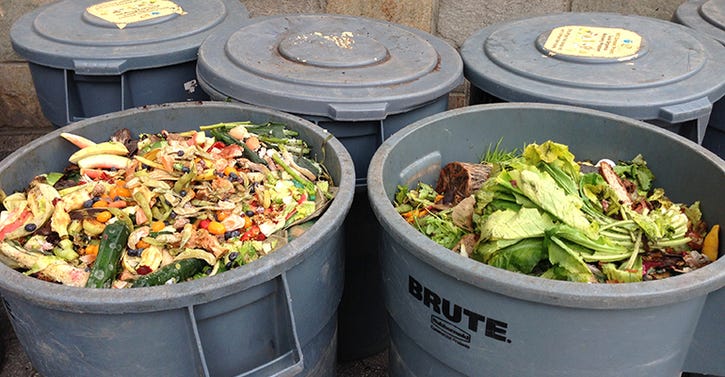
Waste360: What accomplishments are you most proud of?
Melissa Filiaggi: I’m happy to be at a point in my career where I can help others coming up in the solid waste and recycling industry. I’ve learned a great deal from the people I have worked with, many who spent a lot of time teaching me about their aspect of the business. I’m happy to pass that knowledge on and be able to help people find a fulfilling career in this industry.
Waste360: You work a lot with multiple stakeholders in your region. What is your style and philosophy when working with these community players?
Melissa Filiaggi: Much of my work involves partnering with external people and entities, primarily county government officials, commodity buyers, haulers and other industry players. For example, I work closely with commodity buyers to ensure the sites produce high-quality products and manage the dynamic commodity markets.
MES operates several facilities that are owned by county governments, so I work with government representatives to provide information about commodity sales, anticipated market trends and the overall recycling industry. My philosophy is to provide friendly, accurate service. Relationships are always centered around a common goal, so anything I can do to make my partners’ work easier will benefit both of us.
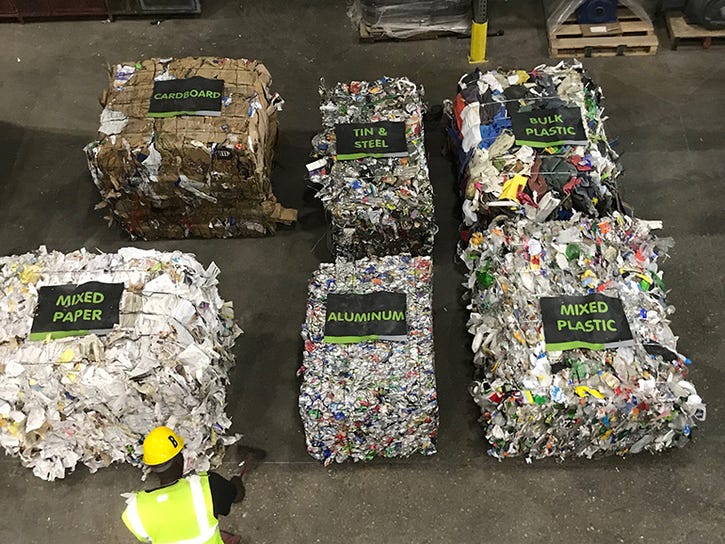
Waste360: What’s your teaching style? Does it carry through in your current work?
Melissa Filiaggi: I always tried to meet my students where they were in terms of knowledge. In order for people to understand a topic, they often need a reasonable amount of background knowledge. As professionals in this industry, it is important to remember that, for most people, their solid waste experience and knowledge stops at the curb.
Specifically, the rules of recycling can be confusing and sometimes a bit mysterious. Why can I recycle bottles with paper at home but not at work? Why is a plastic bottle recyclable but a plastic bag is not? Explaining a bit about how a materials recovery facility (MRF) works allows people to connect that knowledge with the actions they take in their daily lives. That understanding increases ownership, making people more likely to comply with the rules of recycling, and often encourages individuals to share their knowledge.
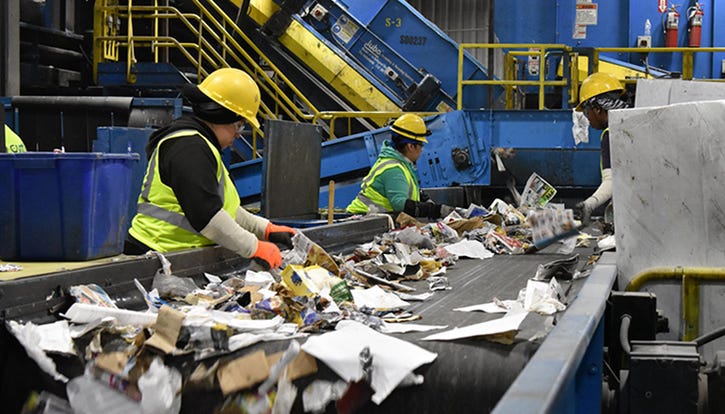
Waste360: How has Maryland Environmental Service been impacted by China’s National Sword? What is happening now, and what changes do you see as a result of China’s policies?
Melissa Filiaggi: We certainly have seen impacts from the restrictions placed on mixed paper. As with everyone else in this industry, fiber prices have declined while quality standards have increased. We have worked closely with our partners to put in place strategies to meet these new standards.
The recycling industry is going through an adjustment, but I’m confident that the markets will stabilize. There has been significant investment in domestic mill capacity, which should come online over the next year or two.
There is a trend toward the simplification of recycling streams and moving back to the “basics” of paper, cardboard, plastic, glass, aluminum and steel. This approach has the benefit of producing cleaner material and making it easier for residents to understand what they can and cannot recycle.
Only material with viable end markets can be recycled in a long-term, sustainable system. Wishcycling (including unacceptable materials in the hope that the item will be recycled) contributes to contamination and reduces the effectiveness of recycling programs. I would encourage anyone who manages a recycling program to work closely with their MRF to determine a list of acceptable materials that work for everyone.
About the Author
You May Also Like




